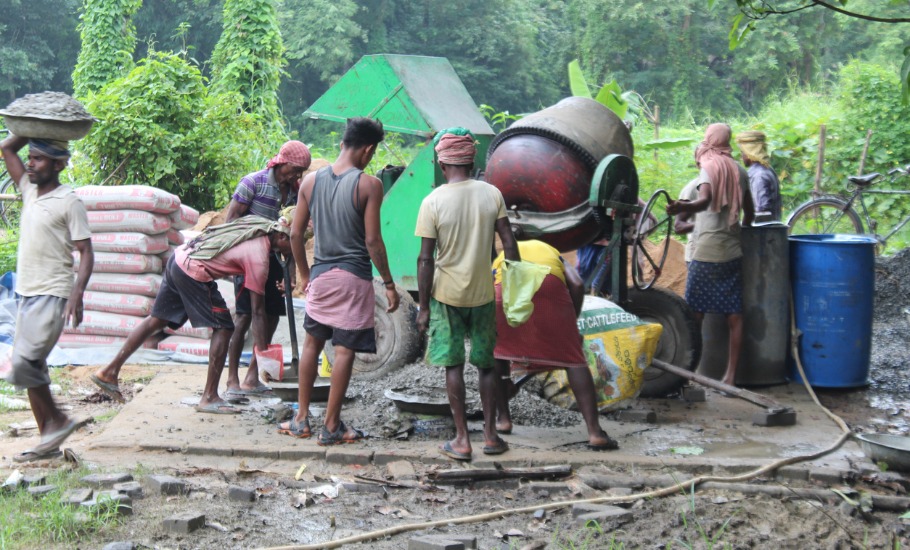
Provide food, ration card to poor sans address proof: Centre tells states
The Centre has directed states to provide foodgrains and ration cards to the vulnerable sections even without address proof, in a bid to bring the homeless, poor labourers and ragpickers under the food security programme

Amid the pandemic that has hit the nation’s poor very hard, the Centre has advised all the state governments to ensure food is provided to the most vulnerable sections of the society under the National Food Security Act (NFSA), 2013.
The Department of Food & Public Distribution, under the Ministry of Consumer Affairs, Food & Public Distribution, has written to the Food & Civil Supplies Departments of all states, saying foodgrains and other basics should be provided to the needy. The governments should take care of the street-dwellers, ragpickers, hawkers, rickshaw pullers, migrant labours and others, who are in dire need of foodgrains but are unable to procure ration cards for want of address proof, it said.
Centre issued advisory to all States/UTs to launch special drive to issue NFSA ration cards to most vulnerable & economically weaker sections of population
Read here: https://t.co/Md5gh752fl
— PIB India (@PIB_India) June 3, 2021
“In the present condition, States/UTs are requested to utilise the available coverage under their overall NFSA limits by launching a special drive to reach out to the most vulnerable and economically weakest sections of the population in urban and rural areas,” said the letter. “In view of the above, all the States/UTs are requested to furnish a fortnightly status report to this Department.”
“The constant endeavour under the NFSA should be to take special care for identification and providing ration cards to eligible households in urban as well as rural areas, subject to the overall ceiling of each State/UT,” it further said.
Free foodgrains under PMGKAY
The government is estimated to offer subsidised grains under the NFSA to nearly 80 crore beneficiaries, who are identified as food-insecure. These beneficiaries get 5 kg of free foodgrains each for May and June under the Pradhan Mantri Garib Kalyan Anna Yojana (PMGKAY), which was announced as part of the COVID package last year.
However, a large section of the poor does not have a proper address, and therefore no ration card. This makes them fall through the cracks in food security coverage.
Also read: Nearly 2,400 Uttarakhand cops catch COVID despite getting both shots
Even the latest advisory does not clarify if Aadhaar and address proof will be completely waived for ration card issuance, noted a Hindustan Times report.
Some states have already begun to take measures to reach food and other basic items to the poorest of the poor. For instance, Delhi Deputy Chief Minister Manish Sisodia has said his government will offering foodgrains and other items to the poor even sans ration cards from this Saturday. “Ration has started reaching government schools from today. Those who do not have ration card will also start receiving ration from June 5,” he said on Twitter.
Making food available easily
A report titled ‘State of Working: India 2021’, written by economists Amit Basole, Rosa Abraham and others of the Azim Premji University’s Centre for Sustainable Employment (CSE), revealed that 23 crore people were pushed into poverty in just a year in India. It further noted that as poverty shot up, households were forced to borrow money from informal sources. Also, they cut down on their food consumption, with women bearing the brunt of it.
It is to address this that social sector NGOs and experts have suggesting that food subsidy provision be delinked from Aadhaar/ration card.
While the Centre, since the onset of the COVID pandemic, announced some measures last year to address the needs of the poor, the most vulnerable sections often get left out since they lack ration cards. Repeated criticism from the media and NGOs is seen to have prompted the Centre to address this gap now.
This year, the Centre is yet to come out with any COVID relief package for the poor, while some states such as Kerala and Tamil Nadu have announced their own.


